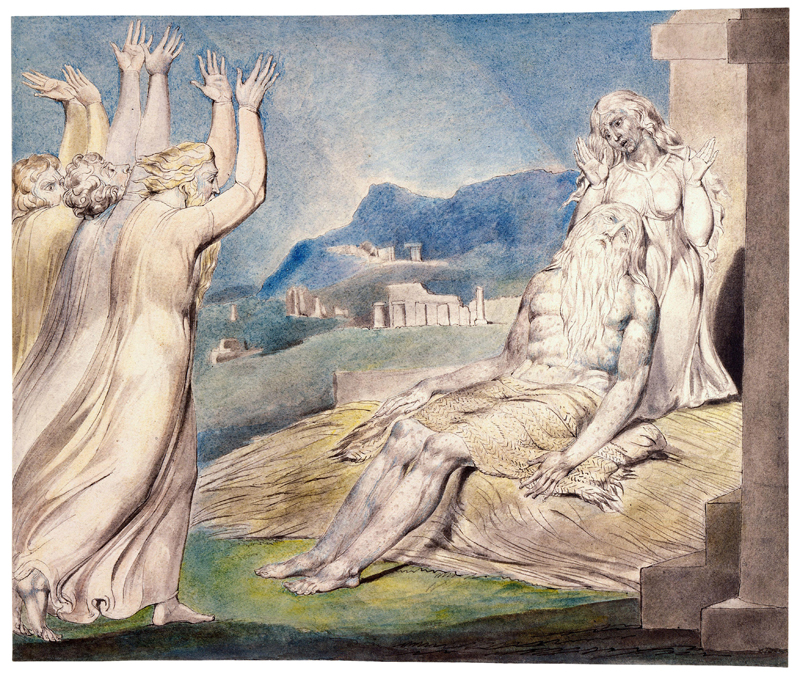The words can leave you flat on your face. This week finds Peter and Paul struggling with the radical change that the call of God has wrought for each of them. (Paul, you’ll remember, was literally flat on his face on the Damascus road.) The disciples are regularly flattened by the challenge Jesus offers. And, perhaps most clearly, no one is overturned quite like Job, who sits on an ash heap, sick and grieving, waiting for an answer from God on why things are so bad. Maybe that’s a bit of how we feel right now: stretched, challenged, beaten, flattened. It’s likely not as bad as Job; but even Job had comforters—friends who tried to help him, no matter how insensitive they may have been. One of the challenges of this time is that—through the interruption of church, and through advice on distancing—so many have been isolated from one another. Job has one particular friend, Bildad the Shuhite, who speaks this week. All of Job’s friends offer some form of the same argument: that if bad things are happening to you then surely you have offended God in some way. But Job, unlike us, can rely on his righteousness to answer them: oh no I haven’t. Bildad takes another run at Job and offers the following: “For inquire now of bygone generations, and consider what their ancestors have found; for we are but of yesterday, and we know nothing, for our days on earth are but a shadow. Will they not teach you and tell you and utter words out of their understanding?” (Job 8:8-10). And maybe here we see the irony in the friends challenge. God may correct them in the end for their simplistic rendering of the mystery of creation in their theological propositions; but maybe, just maybe, we can see that the friends actually have something to say. Because, when we’re alone—especially when we’re alone—what can we do but listen to Bildad (and Eliphaz and Zophar) and ancient wisdom because they still have something to say? Even when we muddle through our understanding of a bad situation, even when we grasp helplessly at understanding, even then, God may show up—because God was there all along in words just like these.
Tuesday, August 25
First Reading Job 6:1-4, 8-15, 21
Wednesday, August 26
Thursday, August 27
First Reading Job 8:1-10, 20-22
Friday, August 28
First Reading Job 9:1-15, 32-35
Saturday, August 29
First Reading Job 9:1, 10:1-9, 16-22
Sunday, August 30
First Reading Job 11:1-9, 13-20
Second Reading Revelation 5:1-14
Monday, August 31
First Reading Job 12:1-6, 13-25
Art Work: Blake, William, 1757-1827. Comforters of Job, from Art in the Christian Tradition, a project of the Vanderbilt Divinity Library, Nashville, TN. http://diglib.library.vanderbilt.edu/act-imagelink.pl?RC=57696

